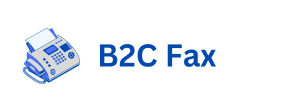In today’s fast-paced digital world, businesses constantly seek ways to reach their target audience more effectively and efficiently. One of the methods gaining popularity is buying email lists. This approach promises a quick and easy solution to expand a business’s marketing reach. However, before jumping into purchasing email lists, it is important to understand the benefits, challenges, and best practices associated with this strategy.
What is an Email List?
An email list is a collection of email addresses that businesses use to send marketing content, newsletters, promotions, italy email list or other communications. These lists can be built organically by collecting emails from website visitors, customer sign-ups, or other interactions. However, some businesses opt to purchase email lists from third-party providers who have already compiled these emails based on specific criteria like industry, demographics, or purchasing behavior.
Buying email lists can seem like an attractive shortcut for companies eager to reach a large audience quickly. Instead of waiting for emails to accumulate organically, businesses can buy pre-targeted lists that are tailored to their marketing needs.
The Benefits of Buying Email Lists
The most significant advantage of purchasing email lists is the ability to instantly access a large group of potential customers. Instead of spending months or years building a list from scratch, businesses can start sending marketing messages right away, reducing the time and effort needed for lead generation.
- Targeted Marketing
Many email list providers offer targeted lists based on various factors such as location, job titles, industries, interests, or buying behavior. This allows businesses to reach the right audience more efficiently, increasing the chances of conversions. For example, this depth of product knowledge enables a company selling office supplies might buy a list of email addresses specifically from businesses or offices.
- Boosting Sales and Revenue
A well-targeted email campaign to a large list of potential clients can significantly boost sales and revenue. By leveraging email lists, businesses can directly promote their products and services to prospects who are likely to engage with the content, ultimately driving conversions and enhancing profitability.
- Cost-Effective Strategy
Compared to other marketing tactics, such as paid advertisements or social media campaigns, purchasing email lists can be more affordable, especially for smaller businesses. With the right list and approach, businesses can achieve a high return on investment. through direct email outreach.
Risks and Challenges of Buying Email Lists
- Quality Control and Relevance
One of the main challenges of buying email lists is ensuring the quality of the data. Not all purchased lists are created equal. Some may contain outdated or irrelevant email addresses, chine directory leading to a lower response rate and wasted resources. If the list is not properly segmented or targeted, it can result in ineffective marketing campaigns.
- Legal and Ethical Concerns
There are legal considerations when buying email lists. In many countries, sending unsolicited emails to individuals without their consent is illegal under privacy laws such as the General Data Protection Regulation (GDPR) in the European Union or the CAN-SPAM Act in the United States. Violating these laws can lead to hefty fines, reputational damage, and loss of customer trust.
- Risk of Spam Complaints
If email recipients perceive your message as spam, they may mark it as such, which can negatively impact your sender reputation. Frequent complaints can cause your emails to end up in spam folders, decreasing your chances of reaching your intended audience. This can also affect your email deliverability in the long term.
- Engagement and Conversion Issues
Even with a targeted list, engagement and conversion rates can vary depending on the quality of the emails. If the emails appear irrelevant or too sales-driven, recipients may ignore or unsubscribe from future emails. This can hurt the effectiveness of future campaigns and your business’s overall email marketing strategy.
Best Practices for Buying Email Lists
To make the most out of purchasing email lists, it is crucial to follow best practices to ensure success.
- Choose a Reputable Provider
Work with established and reputable list providers who comply with all relevant laws and regulations. A reputable provider will offer high-quality, up-to-date email lists with accurate data and targeting options.
- Verify the List Quality
Before purchasing, review the quality of the list by requesting a sample or doing a test campaign. Ensure that the list is segmented properly and aligns with your target audience to improve the chances of success.
- Focus on Permission-Based Marketing
While buying lists might be a shortcut, it is always better to opt for permission-based email marketing strategies whenever possible. This helps build trust and credibility with your audience and minimizes the risk of legal repercussions.
- Follow Up with Engaging Content
Once you have purchased the list, ensure your emails are engaging, informative, and valuable to the recipients. Avoid making your emails overly promotional; instead, focus on delivering content that is relevant to their needs and interests.


